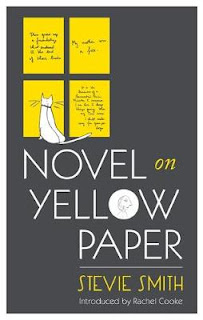An American Marriage by Tayari Jones
A tender and humane dissection of what happens to a relationship when unforeseen events conspire to sabotage it. Tayari Jones’ handling of her protagonists’ emotions is a masterclass in authentic characterisation whilst the story subtly probes issues of race and justice with a piercing emotional intelligence and colossal heart.
Newlyweds Celestial and Roy are the embodiment of the American Dream. He is a young executive, and she is an artist on the brink of an exciting career. Until one day they are ripped apart by circumstances neither could have imagined. Roy is arrested and sentenced to twelve years for a crime Celestial knows he didn't commit.
Devastated and unmoored, Celestial finds herself struggling to hold on to the love that has been her centre, taking comfort in Andre, their closest friend. When Roy's conviction is suddenly overturned, he returns home ready to resume their life together.
A masterpiece of storytelling, An American Marriage offers a profoundly insightful look into the hearts and minds of three unforgettable characters who are at once bound together and separated by forces beyond their control.
 Novel On Yellow Paper by Stevie Smith
Novel On Yellow Paper by Stevie Smith
Stevie's alter ego Pompey is young, in love and working as a secretary for the magnificent Sir Phoebus Ullwater. In between making coffee and typing letters for Sir Phoebus, Pompey scribbles down - on yellow office paper - her quirky thoughts. Her flights of imagination take in Euripedes, sex education, Nazi Germany and the Catholic Church, shattering conventions in their wake.
The Familiars by Stacey Halls
Strikingly evoking the heartland of seventeenth-century industrial Lancashire, Stacey Halls’ accomplished debut is a haunting novel of two women struggling to fight against the expectation and superstition of their age. Told with an infectious passion for the period, Halls’ blend of compelling plot and vividly drawn landscape crafts an unforgettable story of bewitching power.In a time of suspicion and accusation, to be a woman is the greatest risk of all...
Fleetwood Shuttleworth is 17 years old, married, and pregnant for the fourth time. But as the mistress at Gawthorpe Hall, she still has no living child, and her husband Richard is anxious for an heir.
When Fleetwood finds a letter she isn't supposed to read from the doctor who delivered her third stillbirth, she is dealt the crushing blow that she will not survive another pregnancy. Then she crosses paths by chance with Alice Gray, a young midwife. Alice promises to help her give birth to a healthy baby, and to prove the physician wrong.
As Alice is drawn into the witchcraft accusations that are sweeping the north-west, Fleetwood risks everything by trying to help her. But is there more to Alice than meets the eye? Soon the two women's lives will become inextricably bound together as the legendary trial at Lancaster approaches, and Fleetwood's stomach continues to grow. Time is running out, and both their lives are at stake. Only they know the truth. Only they can save each other.
We will meet to discuss our current read: The Switch by Beth O'Leary at 8pm on Thursday 21st May, by ZOOM.













